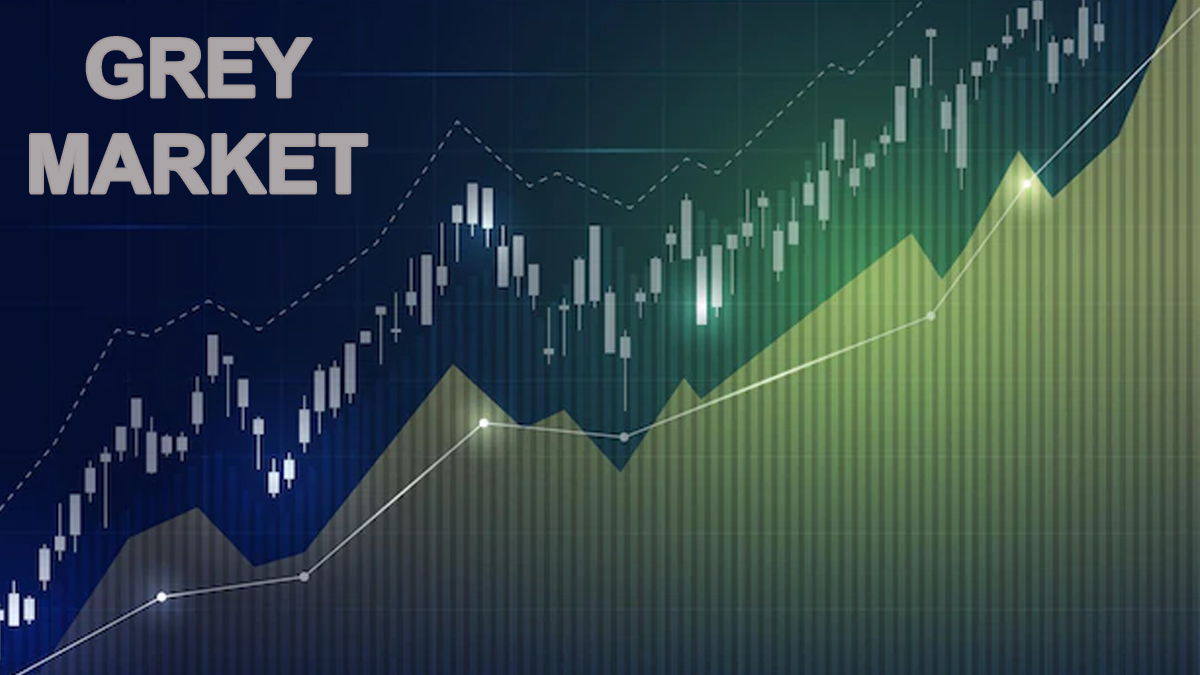IPO Allotment, Grey Market, Grey Market Premium: For those interested in trading and keeping track of the market updates, ‘grey market’ is a familiar term. In simple terms, a grey market is a place where trading takes place 'unofficially' before the listing of a scrip in the secondary market. In this market, a company’s share is offered and bid unofficially through traders before their shares are listed.
A typical example of a grey market is a business selling merchandise of a particular company even though they are not the authorised dealers in the market. In this market, the shares are bought or sold even before they get listed for IPO.
'Parallel Market'
Although it is not an 'official' market for trading and there is no regulator involved, it has been in the trading business for quite a long and traders and investors have been using it to gauge the mood of the investors. Also known as the 'parallel market', financial securities here are traded and investors trade for shares or IPO applications before they are listed in the secondary market.
ALSO READ: These bluechip stocks are available near 52-week lows, should you buy?
“Through the grey market, underwriters also get the opportunity to understand the path of the company after getting listed. Grey market is not backed or regulated by any third party firms like the Securities and Exchange Board of India (SEBI),” Rachit Chawla, founder & CEO, Finway FSC, said.
Grey Market: How it works
Trading in the grey market is done in cash and in person. It gives an idea about the demand and value for IPO before listing. The IPO GMP or Grey Market Premium starts unofficially in the unregulated market after the IPO date and price band are announced. Grey market premium is the extra amount the buyers are ready to pay over and above the issue price. For example - assume the share price of a company is Rs 100 and GMP is Rs 50, it means the people are ready to buy the shares at Rs 150.
Kostak Rate vs Subject to Sauda
Unofficially, an investor can sell an IPO application to a buyer at an agreed price (Kostak Rate) before the listing. In the case of the 'Subject to Sauda' deal, while selling IPO applications in the grey market, the buyer and seller agree that the deal will be valid only if the seller gets the allotment of IPO allocations. If the seller doesn't get an allotment, the deal gets void.
ALSO READ: Adani to acquire Holcim’s stake in Ambuja Cements, ACC Limited for $10.5 bn
Kostak is a term which is used for the amount a person is ready to pay for the IPO application before the listing. One can buy and sell their full IPO application on Kostak rates in the grey market and make a profit. For instance, if a person has 3 applications for one IPO and sells each application at a premium of Rs 2,500 premium, it means that the individual has secured a profit of Rs 7,500. If he gets the allotment in 2 applications, still his profit will be the same. When he will sell the stocks earned in two applications, he will have to share the profit with the person who bought the application.
It may be noted that when premium falls in the grey market, it is an indication that grey market traders are assuming that the issue will list at discount. When the premium increases in the grey market, it indicates that the IPO will list at a higher price than the issue.
ALSO READ: PAN or Aadhaar mandatory for cash deposits or withdrawals above Rs 20 lakh
Manoj Dalmia, founder and director, Proficient Equities Private, said that a good grey market premium doesn't guarantee a listing gain or long term gains. Grey market premiums may change in the duration when you apply for an IPO and when the issue gets listed.
"An IPO investor should consider various factors before applying in an IPO including company financials, business model, promoters, Issue size, upcoming projects or investment plans etc," he said.
Risk in Grey Market
Trading in the grey market is very risky because SEBI or any other regulatory body for securities is not involved in this. Transactions are totally executed on a mutual trust basis in the grey market. Deals in the grey market are done with mutual trust and are managed by a small section of people. Therefore institutions like mutual funds, pension funds, and other investors shy away from trading in the grey market.

